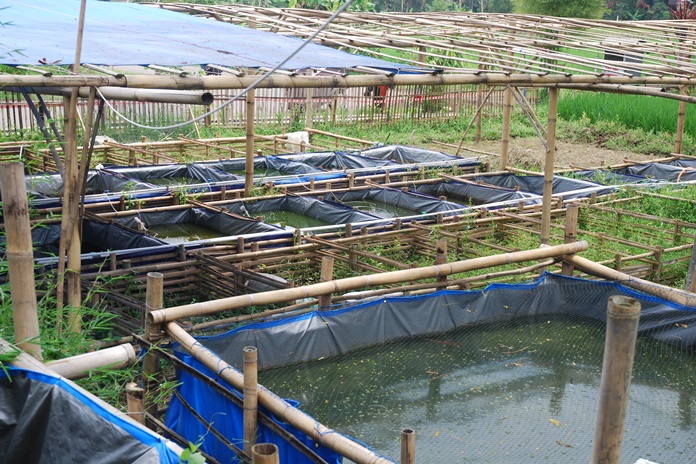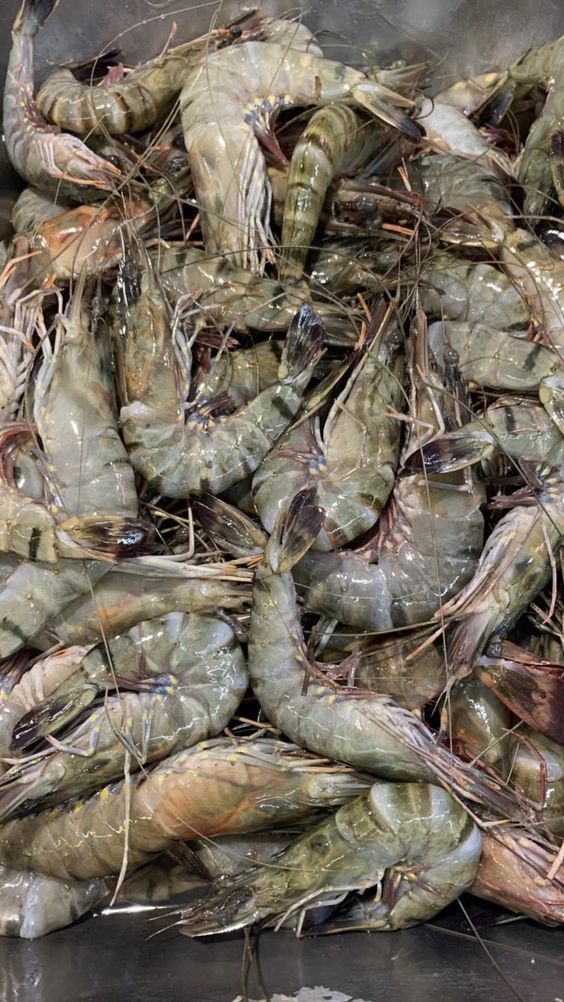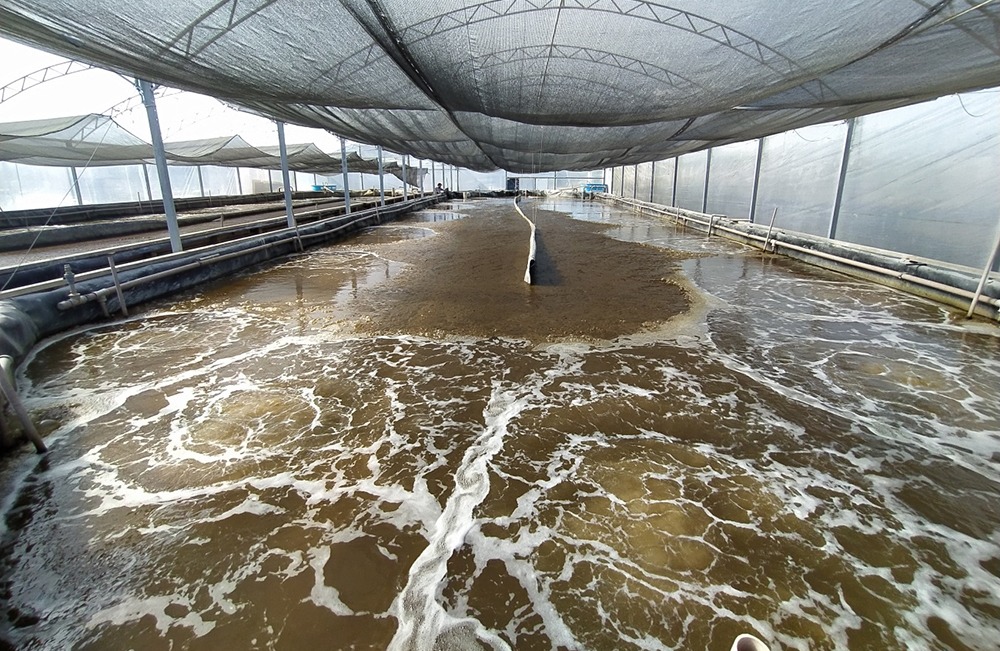Organic Snakehead Fish Cultivation: A Sustainable Approach to Aquaculture
Organic Snakehead Fish Cultivation, belonging to the Channidae family, are a popular freshwater delicacy in many parts of the world. Their firm flesh and unique flavor have driven a rise in demand, leading to increased aquaculture efforts. However, conventional practices often rely on intensive methods that can have negative environmental impacts. Organic snakehead fish cultivation offers a more sustainable solution, promoting healthy fish growth while protecting the environment.
Contents
- 1 Benefits of Organic Snakehead Fish Cultivation
- 2 Organic Snakehead Fish Cultivation Practices
- 3 Challenges and Solutions in Organic Snakehead Fish Cultivation
- 4 The Role of Certification
- 5 Advantages of Organic Certification for Snakehead Fish Farmers
- 6 Government and Industry Support
- 7 The Future of Organic Snakehead Fish Cultivation
Benefits of Organic Snakehead Fish Cultivation
- Environmental Sustainability: Organic snakehead fish cultivation offers a range of benefits that make it an attractive option for both producers and consumers. One of the primary advantages is environmental sustainability. By avoiding the use of synthetic chemicals like antibiotics, growth hormones, and pesticides, organic practices help minimize pollution. This results in better water quality and protection of the surrounding ecosystem, making organic farming a more environmentally friendly approach compared to conventional methods.
- Improved Fish Health: Another significant benefit is improved fish health. Organic snakehead fish are typically fed natural diets, such as live prey, insects, and formulated organic feed. These natural food sources promote healthier immune systems in the fish, reducing the need for antibiotics and minimizing disease outbreaks. Healthier fish not only lead to more sustainable farming but also ensure a better-quality product for consumers.
- Enhanced Fish Quality: Enhanced fish quality is another important aspect. Research shows that organic fish contain higher levels of omega-3 fatty acids and other essential nutrients compared to their conventionally farmed counterparts. This makes organic snakehead fish a tastier and more nutritious choice for consumers, appealing to those seeking healthier food options.
- Consumer Confidence: Moreover, organic fish cultivation aligns with the growing demand for environmentally responsible and safer food products. This trend boosts consumer confidence, as people are increasingly conscious of food safety, ethical practices, and sustainability. Organic snakehead fish caters to this market, offering a product that meets these expectations.
- Economic Opportunities: there are economic opportunities for farmers. Organic certification can open doors to premium markets where organic products often command higher prices. This can lead to improved incomes and contribute to the economic development of local communities, creating a sustainable and profitable business model for producers.

Organic Snakehead Fish Cultivation Practices
1. Pond Selection and Management:
- Ponds should be located away from sources of pollution and have a good water source.
- Natural materials like clay or loam are preferred for pond construction, promoting healthy bottom conditions.
- Aquatic plants like water hyacinths can be introduced for filtration, oxygenation, and providing natural food sources for the fish.
- Regular pond monitoring is crucial, including water quality checks for parameters like pH, dissolved oxygen, and ammonia levels. Probiotics and natural aeration methods can be used to maintain a healthy pond ecosystem.
2. Broodstock Selection and Breeding:
- Healthy and disease-free snakehead broodstock should be sourced from reputable organic farms.
- Creating a natural breeding environment in ponds with aquatic vegetation can encourage natural spawning behaviors.
- Alternatively, controlled breeding techniques can be employed in separate breeding tanks using organic methods.
3. Organic Feed Management:
- Live prey like earthworms, insects, and small fish can be used as a natural food source for snakehead fry and fingerlings.
- Formulated organic feeds made from plant and animal proteins certified for organic use should be provided as the fish grow larger.
- Maintaining proper feeding schedules and avoiding overfeeding is essential for water quality management.
4. Disease and Pest Control:
- Preventive measures are key in organic aquaculture. Maintaining a healthy pond environment with good water quality reduces the risk of disease outbreaks.
- Probiotics and natural immunostimulants can be used to boost the fish’s immune system.
- If disease occurs, only approved organic treatments like plant-based remedies should be used.
5. Harvesting and Processing:
- Harvesting methods should minimize stress on the fish. Seine nets or traps are preferred over methods that can injure or kill fish.
- Proper handling and transportation practices are crucial to maintain fish quality.
- Organic certification processes typically dictate specific guidelines for processing, packaging, and labeling of organic snakehead fish.
Challenges and Solutions in Organic Snakehead Fish Cultivation
- Lower Yields: Organic snakehead fish cultivation presents a variety of challenges, but with the right solutions, these obstacles can be managed effectively. One of the primary issues is lower yields. Organic farming methods often result in slightly reduced production levels compared to conventional methods, especially during the early stages. This is largely due to the absence of synthetic chemicals and growth enhancers, which can limit rapid growth. However, the improved fish health and access to premium markets, where organic products are highly valued, can offset this yield difference. The premium prices that organic fish often command can make up for the lower production volume, ensuring that farmers remain profitable.
- Feed Availability: Another significant challenge is feed availability. Sourcing enough certified organic feed for snakehead fish can be difficult, particularly in regions where organic agriculture is not well-developed. This can lead to higher feed costs or limited options for farmers. A potential solution is to explore alternative organic feed sources such as insects, algae, or other naturally occurring materials that meet organic standards. Additionally, farmers can invest in on-farm feed production systems, growing their own organic feed materials, which not only ensures a reliable feed supply but also reduces costs over time.
- Market Access: Organic Snakehead Fish Cultivation,Market access is another hurdle that organic snakehead fish farmers may face. Entering the premium organic market can require significant effort, especially for new or smaller producers. To overcome this, farmers can focus on building strong relationships with organic food retailers, restaurants, and wholesalers who are interested in sustainable and high-quality products. Promoting the benefits of organic snakehead fish to consumers, such as its environmental sustainability, health benefits, and superior taste, can also help generate demand. Engaging in direct-to-consumer sales through local farmers’ markets or online platforms can further expand market opportunities, creating a loyal customer base for organic products.

The Role of Certification
Organic certification plays a critical role in organic snakehead fish cultivation. It ensures that the fish are raised according to established organic standards, providing credibility and transparency to consumers. The specific certification process may vary depending on the region, but generally involves:
- Application and Inspection: Farmers submit an application to a recognized organic certification body. The farm undergoes a rigorous inspection to verify compliance with organic standards.
- Record Keeping: Detailed records must be maintained regarding pond management, feed sources, and any organic treatments used.
- Annual Renewal: Certification is typically renewed annually through ongoing inspections and record verification.
Advantages of Organic Certification for Snakehead Fish Farmers
- Market Access: Obtaining organic certification for snakehead fish farming provides a range of advantages that can greatly benefit farmers. One of the primary benefits is improved market access. Organic certification opens the doors to premium markets that specifically seek sustainably farmed seafood. These markets are willing to pay higher prices for certified organic products, as consumers are increasingly prioritizing health, environmental sustainability, and ethical food choices. By targeting this premium market, organic snakehead fish farmers can secure better profits compared to conventional fish farmers.
- Consumer Confidence: Another key advantage of certification is consumer confidence. In today’s market, consumers are more conscious about the origins and methods used in food production. Organic certification gives them the assurance that the fish has been raised according to strict environmental and health standards. This peace of mind builds trust, encouraging repeat purchases and fostering brand loyalty. Consumers who are concerned about chemical residues, overfishing, and animal welfare are more likely to choose certified organic products, knowing that they meet rigorous guidelines.
- Marketing and Branding: organic certification provides significant opportunities for marketing and branding. Being able to use the “organic” label allows farmers to differentiate their product from conventionally farmed fish. This distinction can be used as a powerful tool in marketing strategies, as the organic label itself carries a certain value and prestige in the marketplace.
Government and Industry Support
Government and industry support can play a vital role in promoting the growth and success of organic snakehead fish cultivation. This can include:
- Developing and Implementing Organic Aquaculture Standards: Establishing clear and well-defined organic aquaculture standards specific to snakehead fish is crucial.
- Research and Development Funding: Investing in research exploring organic feed production, breeding techniques, and disease prevention methods can benefit the entire industry.
- Extension Services and Training Programs: Providing training and educational programs for farmers on organic snakehead fish cultivation practices can help build capacity and improve adoption rates.
- Marketing and Promotion: Collaborative efforts can promote organic snakehead fish to consumers, highlighting the benefits of sustainable aquaculture practices.
The Future of Organic Snakehead Fish Cultivation
With growing consumer demand for sustainable and healthy seafood, organic snakehead fish cultivation has promising potential. As research and development efforts continue, production efficiencies can improve, making organic snakehead fish a more viable option for farmers and consumers alike. By embracing sustainable practices and collaborating with various stakeholders, the future of organic snakehead fish cultivation holds promise for a thriving aquaculture industry that prioritizes both environmental responsibility and consumer well-being.
Organic snakehead fish cultivation offers a compelling approach to raising healthy, high-quality fish while minimizing environmental impact. By adopting organic principles, fish farmers can contribute to a more sustainable food system while meeting the growing demand for organic seafood. Through collaboration, innovation, and a commitment to organic certification, the future of organic snakehead fish cultivation is brimming with potential.






